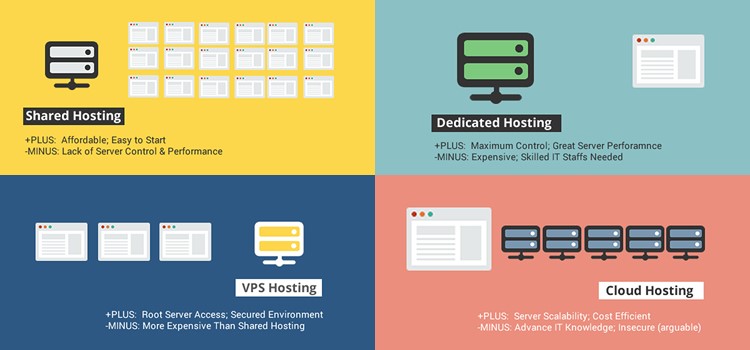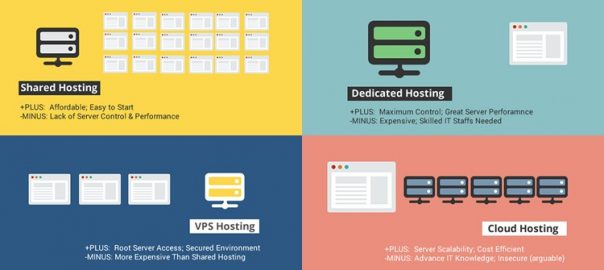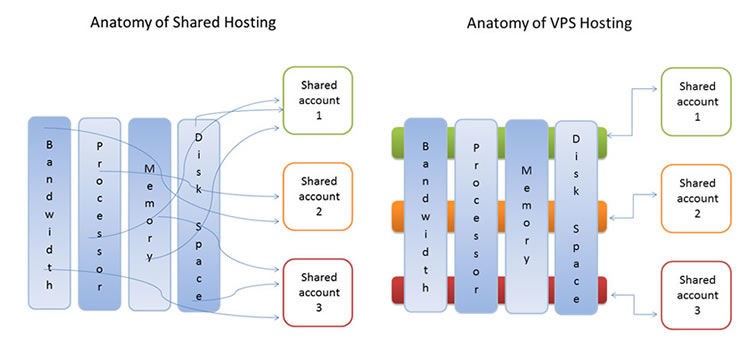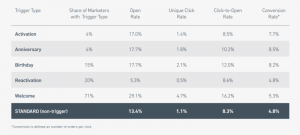VPS Hosting vs Cloud Hosting: Which is better suited for your business?
When it comes to starting an online business there are several things that need to be taken into account. One of the foremost things that you need to decide on, is the website hosting.
Since you are planning on taking your business online, a website is a must have. Hosting in this context plays an important role, that bridges the gap between your website and the internet. There are several types of hosting services and providers available all over the internet. Two of the most popular hosting types are – Cloud and VPS.
Both VPS and Cloud (as cloud servers) offer root access and complete control over your server. However, in terms of flexibility and pay as you use, Cloud is far superior. Before we move further, of which hosting is best suited for your business. Let’s look at what these hosting types comprise of.
VPS Hosting:
VPS stands for Virtual Private Server. It is basically a midway between Shared Hosting and Dedicated Hosting. In simple terms, VPS Hosting, gives the user the best of both the aforementioned hosting services. It is a physical machine that is divided into groups of virtual compartments.
These virtual compartments, have independent server resources like CPU, RAM, OS (Linux or Windows) and disk space which do not let the performance of your website take a backseat. Just like Dedicated Hosting, you get complete root access of your server, yet at the same time you are using the same physical server that other connected servers are using.
Cost wise, although slightly costly as compared to Shared Hosting, VPS is cost effective if seen from the standpoint of the amount of features you are getting in reference to high priced Dedicated Hosting.
Cloud Hosting:
Cloud Hosting is a substitute to hosting websites on a single server. In Cloud Hosting, multiple servers work together to look like one huge server. Cloud Hosting offers unlimited bandwidth, easy scalability and high performance rate. In simple words, Cloud Hosting hosts websites across various web servers that are interconnected, in contrast to traditional physical hosting.
One of the prime advantages of Cloud Hosting is that, even if one server is down your website isn’t. This is so because, you don’t depend on a single server, as soon as one server goes down others take over resulting in minimal to zero downtime.

Key Differences between VPS and Cloud Hosting
|
VPS Hosting |
Cloud Hosting |
|
Server: In VPS Hosting, a single server is split up amongst a number of users each having its own resources. |
In Cloud Hosting, resources are distributed across multiple physical servers. |
|
2. Scalability: There is an option of instant scalability though users have to manually upgrade the service. |
2. All it takes is a few clicks and your server is upgraded. |
|
3. Cost effective as resources are shared. |
3. Comparatively costs higher as the user is charged for the resources used. |
|
4. Ideal for users who looking for a customizable environment. Though being a pro is not necessary basic server knowledge is mandatory. |
4. Ideal for users who have high level of technical knowledge and a rather large scale business to leverage the potential of Cloud Hosting. |
Now that you know what is VPS Hosting and Cloud Hosting as well as the difference between them it should be easier to determine which hosting suits your online business the best. If you are starting out to grow now and expect rapid growth, it is best to go with VPS Hosting as it will be easier to manage and even cost effective. You can upgrade to the Cloud once your business has grown and VPS Hosting no longer can handle the load / requirements.
(184)
Report Post









